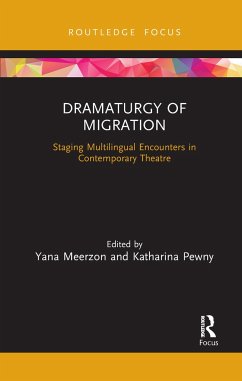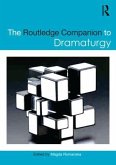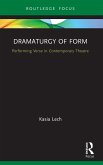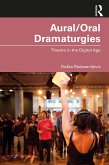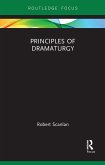Dramaturgy of Migration: Staging Multilingual Encounters in Contemporary Theatre examines the function of dramaturgy and the role of the dramaturg in making a theatre performance situated at the crossroads of multiple theatre forms and performative devices.
This book explores how these forms and devices are employed, challenged, experimented with, and reflected upon in the work of migrant theatre by performance and dance artists. Meerzon and Pewny ask: What impact do peoples' movement between continents, countries, cultures, and languages have on the process of meaning production in plays about migration created by migrant artists? What dramaturgical devices do migrant artists employ when they work in the context of multilingual production, with the texts written in many languages, and when staging performances that target multicultural and multilingual theatregoers? And, finally, how do the new multilingual practices of theatre writing and performance meet and transform the existing practices of postdramatic dramaturgies? By considering these questions in a global context, the editors explore the overlapping complexities of migratory performances with both range and depth.
Ideal for scholars, students, and practitioners of theatre, dramaturgy, and devising, Dramaturgy of Migration expresses not only the practicalities of migratory performances but also the emotional responses of the artists who stage them.
This book explores how these forms and devices are employed, challenged, experimented with, and reflected upon in the work of migrant theatre by performance and dance artists. Meerzon and Pewny ask: What impact do peoples' movement between continents, countries, cultures, and languages have on the process of meaning production in plays about migration created by migrant artists? What dramaturgical devices do migrant artists employ when they work in the context of multilingual production, with the texts written in many languages, and when staging performances that target multicultural and multilingual theatregoers? And, finally, how do the new multilingual practices of theatre writing and performance meet and transform the existing practices of postdramatic dramaturgies? By considering these questions in a global context, the editors explore the overlapping complexities of migratory performances with both range and depth.
Ideal for scholars, students, and practitioners of theatre, dramaturgy, and devising, Dramaturgy of Migration expresses not only the practicalities of migratory performances but also the emotional responses of the artists who stage them.

